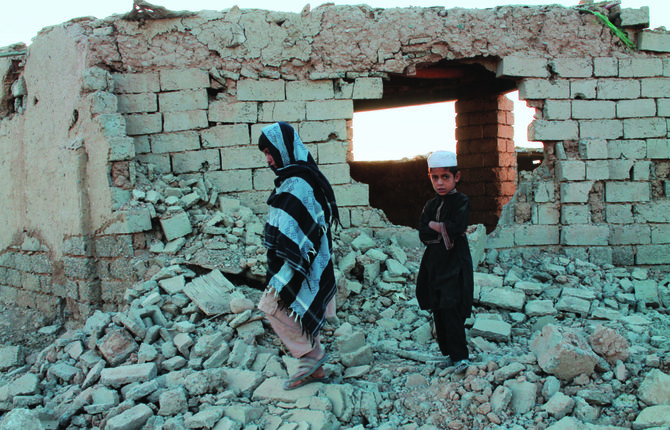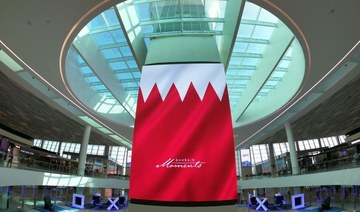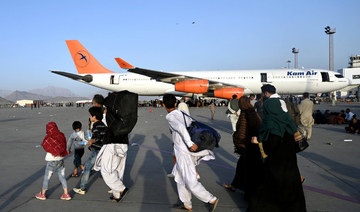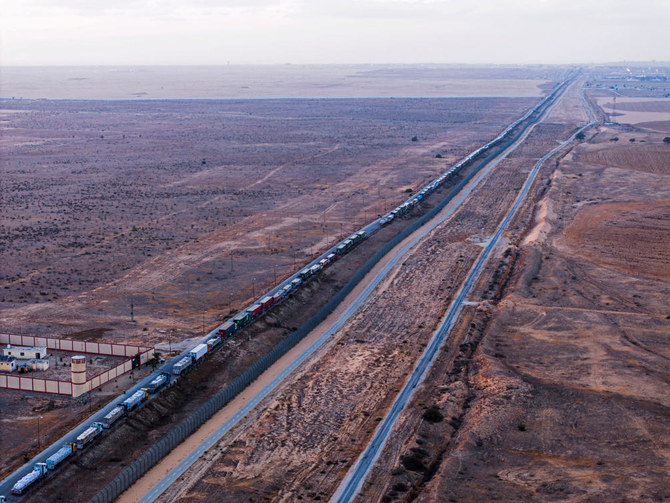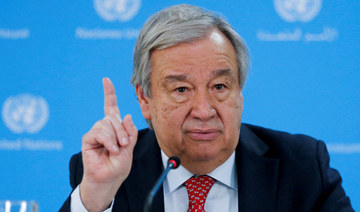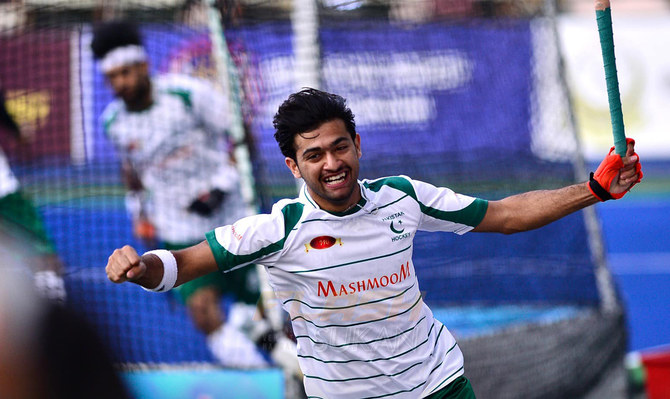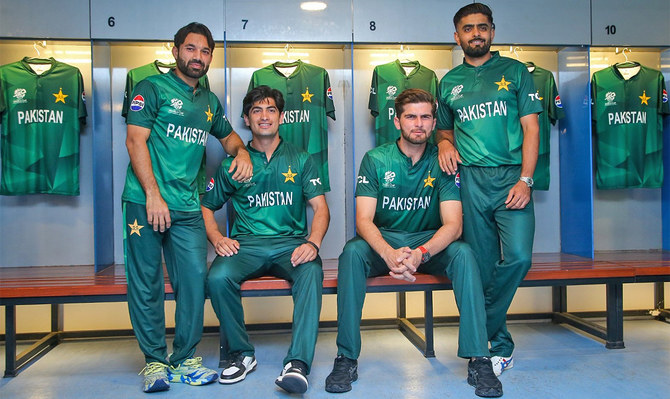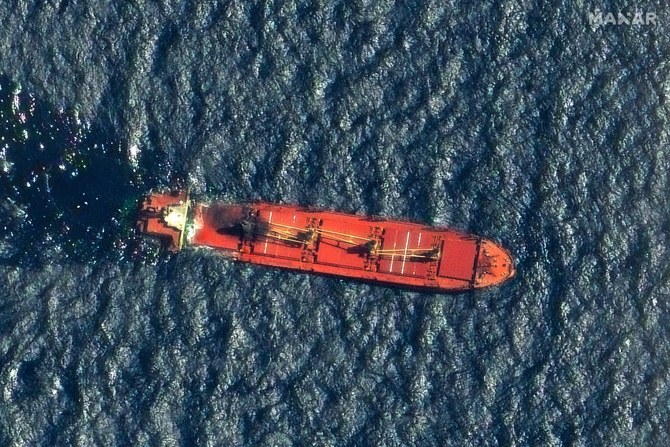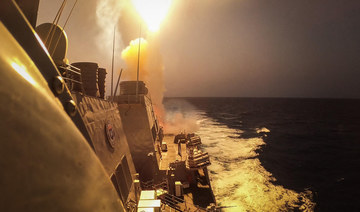PARIS: History is repeating itself in Afghanistan: The Taliban have regained power. As they advanced toward Kabul, the army and police abandoned their posts and weapons, demotivated by the withdrawal of American troops and the departure of President Ashraf Ghani, who sought refuge in Tajikistan before moving to the UAE.
Since their seizure of Kabul a few days ago, a series of significant scenes have followed; hundreds of citizens ran toward the airport fighting for a plane seat, others displayed images of women in wedding dresses in front of a beauty salon in order to avoid punishment; three citizens were killed by Taliban bullets during a demonstration that opposed the desecration of the Afghan flag. Meanwhile, the Taliban continue to assert that they “will respect the rights of men and women” and will not make Afghanistan a haven for terrorists. The armed group admitted to making mistakes when it first came to power.
Today’s challenges are daunting for the Taliban and the economy is the key factor for the new rulers of Kabul. For years, the country has been financed by international donations (50 percent of tax revenue), while poverty reaches 66 percent of the young population and dependence on agriculture in a country that is both landlocked and mountainous at 50 percent complicates economic recovery.
Arab News France met with Torek Farhadi — the former economic adviser to Hamid Karzai, the first post-Sept. 11 Afghan president — to get an update on the Afghan economy and its prospects in the changed circumstances.
Q Who are Afghanistan’s most important economic partners today?
A Afghanistan is a country that imports fuel, food, medicine and construction materials worth $10 billion. Its biggest partners are Iran, followed by Pakistan and then Uzbekistan. With imports worth $10 billion annually, the Taliban could earn money and continue to pay state officials by imposing taxes on goods at customs. The country has run out of cash and the US has frozen the reserves of the Afghan Central Bank. Having said that, the country is not heading toward a payments crisis, but if the Afghan Central Bank is not operative, letters of credit and debts cannot be honored, and so the Afghan pound will lose value.
Q As an importing country, does Afghanistan have enough foreign exchange reserves to survive?
A The former governor of the central bank said foreign exchange reserves are nearly nonexistent. Most of Afghanistan’s reserves are invested in foreign banks, for security. However, this is not a good solution, because there is no more money within the country and the money abroad is frozen.
Q How could these frozen reserves be released?
A To unfreeze this money, it is important that the Taliban convert into statesmen. The international community’s condition is for the Taliban not to shelter terrorists, to respect women’s rights and to form an inclusive government with competent personalities. Then again, they must act quickly, because once the government is elected the Taliban will be able to claim the central bank reserves, which amount to $9.5 billion, frozen in accounts in the US. The economic situation must not deteriorate; if so, it will push the Taliban into ostracism and the international community will by default create a nonstate actor. We must not isolate states and peoples, then wonder why and how human trafficking, drug trafficking and terrorism proliferate in these countries. We must push the Taliban to form a government, include the different political components of Afghan society and respect the rights of men and women. Once these conditions are met, access to parts of the central reserve to pay the country’s bills will likely be possible. This will of course give the international community power over the Afghan government, but Afghanistan should not be turned into a pariah state.
Q The dependence on aid is striking. In 2019, World Bank figures show that development aid was 43 percent of the gross national income. Will this aid to Afghanistan last?
A Germany, Japan, the US, Great Britain and the EU are the biggest donors. They have contributed significantly to the country’s current budget; just before the collapse of the Ghani government, around 70 to 80 percent of the annual budget was funded by donors. What we would like is for the government formed by the Taliban to be open and extended to gain the world’s confidence and to keep providing aid. Countries like Germany have warned that if the Taliban apply Shariah this aid will stop, but these are internal policy statements and this same Germany will help the UN and the World Bank to raise funds for humanitarian reasons. However, when there are famine problems that would affect women and children, international organizations must be able to channel this aid. I am for diplomacy that engages groups and shows them the levers of interchange with the international community.
Q The Taliban spokesperson says that they will not allow the existence of trade and cultivation of opium and other drugs in Afghanistan. The reality, on the other hand, is that the Taliban have always relied on the sale of opium (84 percent of world production) and the imposition of an Islamic household tax (zakat). Will they use these processes again?
A We must separate the two periods. There was the one where the Taliban were an armed resistance group, which waged war and had income of all kinds; the opium that you mentioned in the southwest, the mining reserves scattered around the country, the collection of taxes on agriculture and of goods at customs, etc. But today this armed group will rule Afghanistan and must learn how to find an income and decide what to spend it on.
Q Hamid Karzai is known to have left power with millions of dollars in his bank account. Is this the case with Ashraf Ghani? What was the economic plan of each of its two successive heads of state between 2007 and 2021?
A They are two leaders who did not have economic visions. It is true that fugitive president Ashraf Ghani comes from the World Bank, but he was an anthropologist. He said he wanted to improve the investment climate, but he revived corruption. The people received nothing from the huge sums that were allocated to Afghanistan and that is why his government has collapsed like a house of cards.



